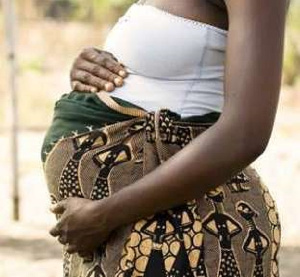Adolescents represent 22 percent of Ghana’s population.
Adolescent pregnancy is a public health concern that puts the mother and unborn baby at risk.
Of all the births registered in 2014, adolescents constituted 30 percent. This is a problem as more often these pregnant adolescents end us as school dropouts.
Adequate nutrition during pregnancy is essential to reduce maternal complications risk and improve birth outcomes. So mothers are not likely to die nor would babies suffer low birth weight.
The pregnant adolescent however, requires even more nutrients to continue her own growth and that of the baby she is carrying.
Ghana has been implementing iron-folate supplementation as part of antenatal services since 2001.
However, iron deficiency anaemia remains a problem among pregnant women.
With little known about nutrition in pregnant adolescents, a group of scientists at the Kwame Nkrumah University of Science and Technology (KNUST) have been trying to understand the effect of poor nutrition among pregnant adolescents in a study called Adolescent Nutrition and Birth Outcomes Ghana (ANBOG).
The ANBOG study involved 416 pregnant adolescents selected from some Ashanti region’s urban and rural districts, with an average age of 17 years.
About 41.6 percent were in rural areas and 58.4 percent in urban communities.
These adolescents were recruited from Asante Akyem South and Central, Ahafo Ano South, Bosomtwe, Ejisu Municapality and Kumasi Metropolis.
The study first established the average age of the pregnancy that these adolescents attended their first antenatal clinic is around 15 weeks.
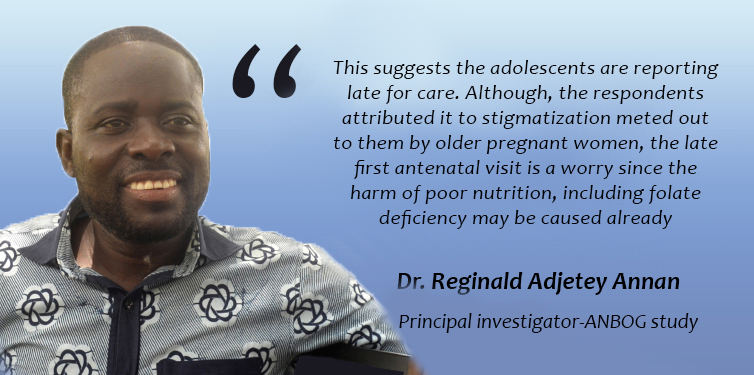
The study has been implemented in 3 phases between May 2018 and November 2019.
Phase one assessed dietary intake, body weight and nutrients in the blood.
The second phase looked at the factors that influence access, uptake and self-efficacy of antenatal interventions.
The researchers were able to follow these pregnant adolescents till they gave birth. Outcomes, including low birth weight, premature birth and death of unborn babies, were assessed in the third phase.
Anaemia: When blood is not 'ironized' enough
Anaemia is a widespread nutritional deficiency disorder and a global public health issue.
It increases the risk of low birth weight, preterm births and infant mortality.
A WHO report says about 42 percent of pregnant adults in Ghana are anaemic.
This study found 57 percent of the adolescent girls were anaemic, although the numbers were lower in the girls from urban areas.
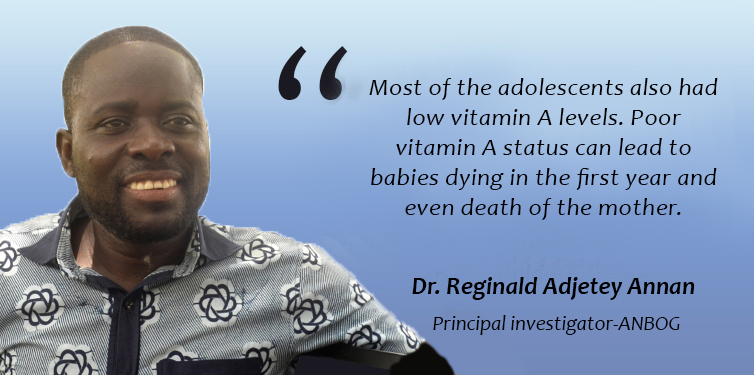
Birth outcomes can be undesirable
Undesirable birth outcomes are premature birth defined as less than 37 weeks of pregnancy and low birthweight where the child weighs less than 2.5 kilograms.
These outcomes have been known to cause illness and infections of the newborns.
A 2016 report in the report Midwifery says there is an increased risk of mothers below age 20 giving birth to low-birth weight infants in Ghana.
The adolescents in the latest study had low birth weight children at 15 percent, followed by 12.5 percent of premature births, stillbirths, unborn baby deaths, bleeding and hypertension after pregnancy.
Starving adolescent; minutiae child
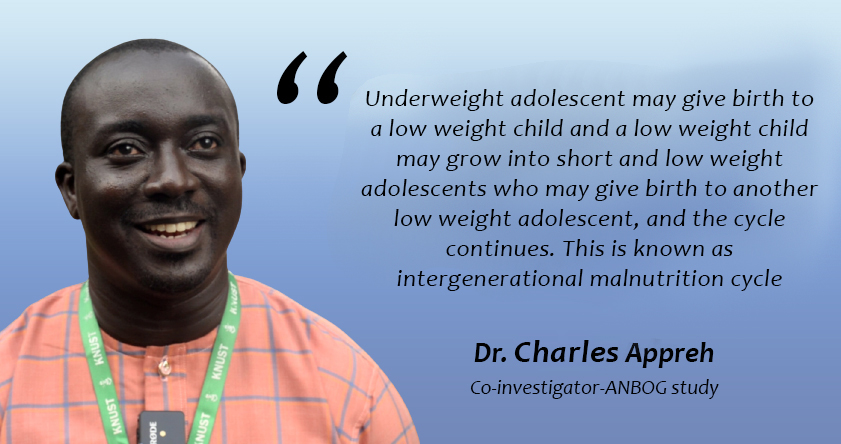
From the study findings, pregnant adolescents who suffered from hunger were twice likely to have low birth weight children and thrice likely to give birth prematurely.
Also, low birth weight and preterm birth proportions were all higher among adolescents with poorer nutrition, including anaemia, and low vitamin A and pre-albumin, a substance in the blood which levels indicate nutrition status, levels.
Dietary Diversity: Varying the diet
It is important for every household to have access to a variety of foods for optimal health.
Consuming 5 or more food groups from a total of 10 every day is recommended.
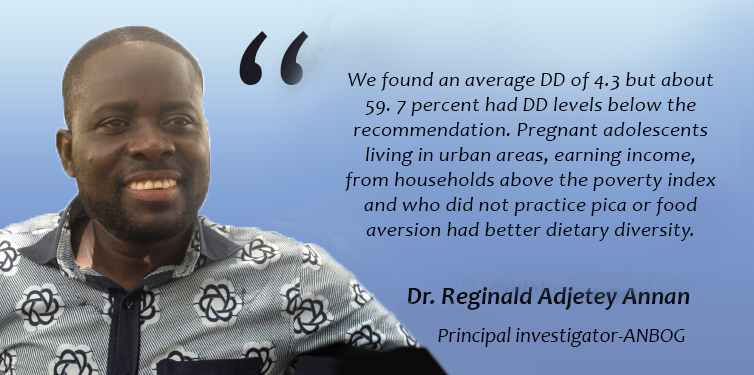
The forbidden foods
Adherence to socio-cultural beliefs and food taboos hinders consumption of these foods during pregnancy. Below are foods tabooed by the pregnant adolescents studied, and reasons given for adherence to these taboos.
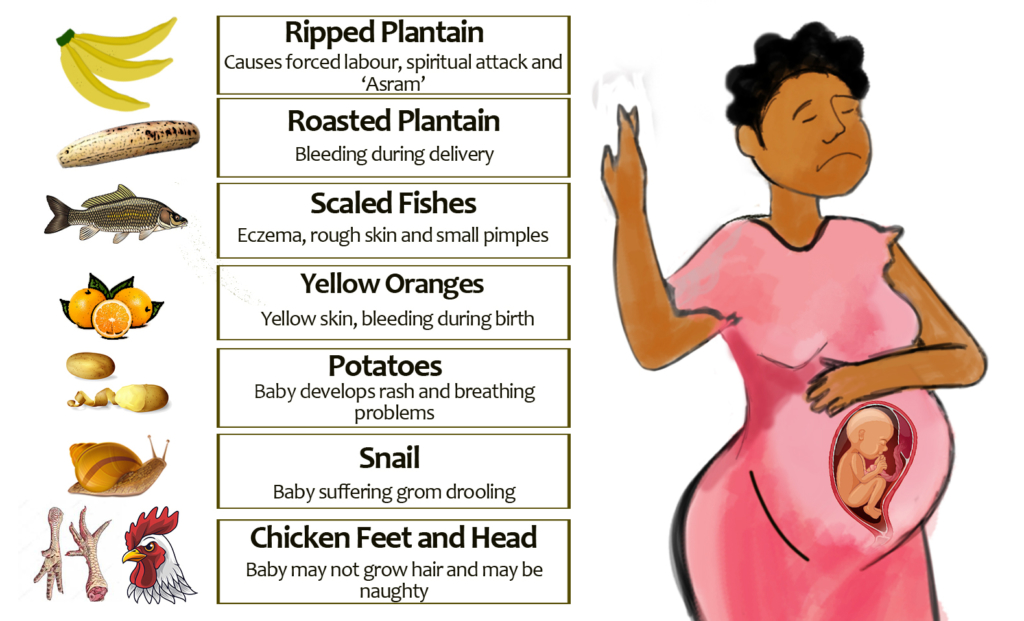
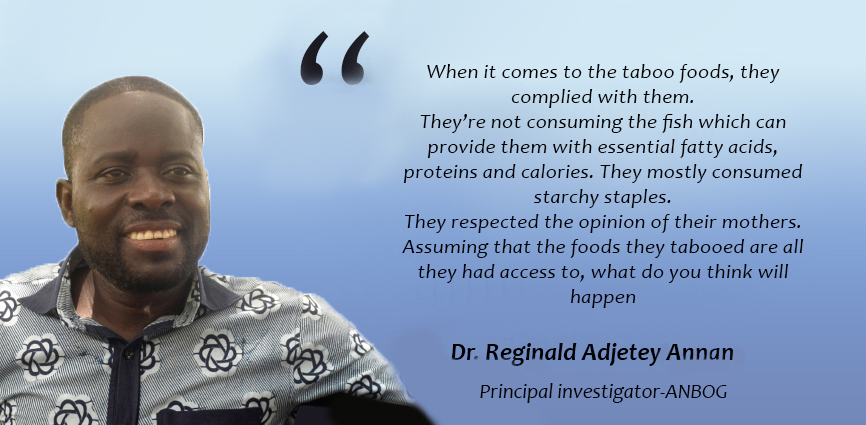
What do they advise?
The team has been disseminating their findings at the Adomfe community and the health directorate in the Asante Akyem South district.
They recommend that Ghana Health Service strengthen compliance to antenatal service interventions, especially the iron-folate supplementation.
There should also be interventions that promote household food availability and access to diverse food.
Separating the antenatal services for pregnant adolescents will be crucial. This is done by some health centres and hospitals already.
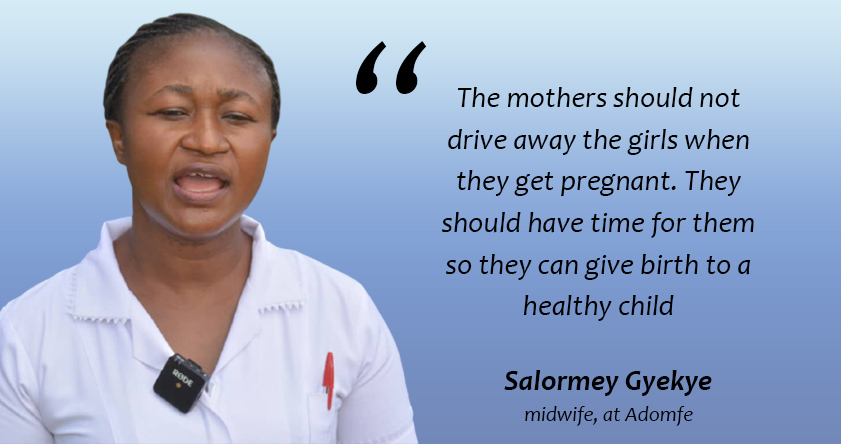
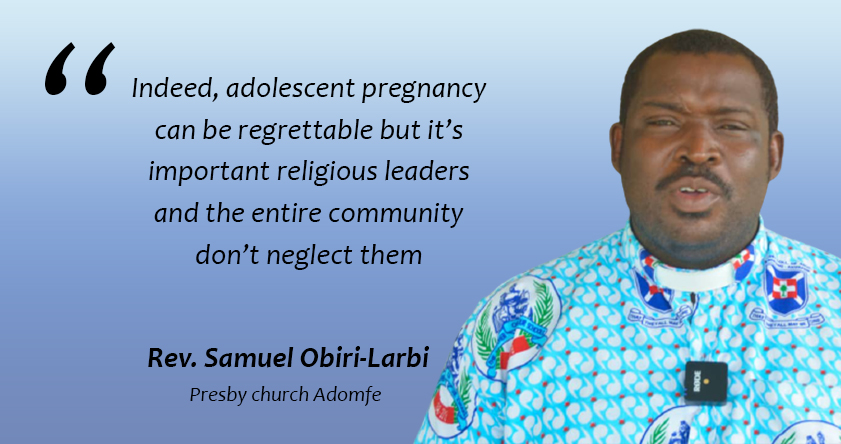
Latest Stories
-
Queenmother calls on President-elect Mahama to appoint more women in his government
2 hours -
Atletico Madrid beat Barcelona to go top of La Liga
2 hours -
Usyk breaks Fury’s heart with points win in rematch
2 hours -
Ghana-Russia Centre to run Russian language courses in Ghana
8 hours -
The Hidden Costs of Hunger: How food insecurity undermines mental and physical health in the U.S.
8 hours -
18plus4NDC marks 3rd anniversary with victory celebration in Accra
11 hours -
CREMA workshop highlights collaborative efforts to sustain Akata Lagoon
11 hours -
2024/25 Ghana League: Heart of Lions remain top with win over Basake Holy Stars
12 hours -
Black Queens: Nora Hauptle shares cryptic WAFCON preparation message amid future uncertainty
13 hours -
Re-declaration of parliamentary results affront to our democracy – Joyce Bawah
13 hours -
GPL 2024/25: Vision FC score late to deny Young Apostles third home win
13 hours -
Enhancing community initiatives for coastal resilience: Insights from Keta Lagoon Complex Ramsar Site Workshop
13 hours -
Family Health University College earns a Presidential Charter
13 hours -
GPL 2024/25: Bibiani GoldStars beat Nsoatreman to keep title race alive
13 hours -
GPL 2024/25 Bechem United keep title hopes alive with narrow win over FC Samartex
13 hours

